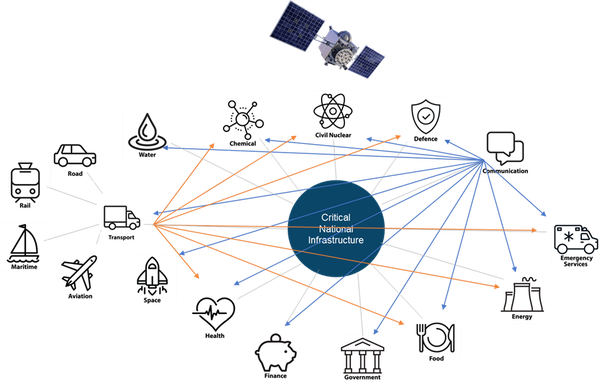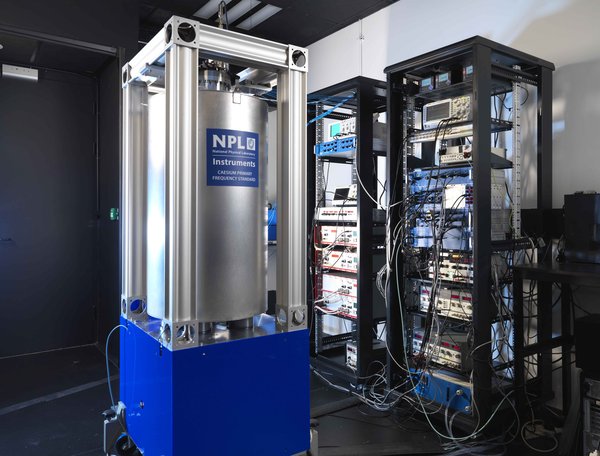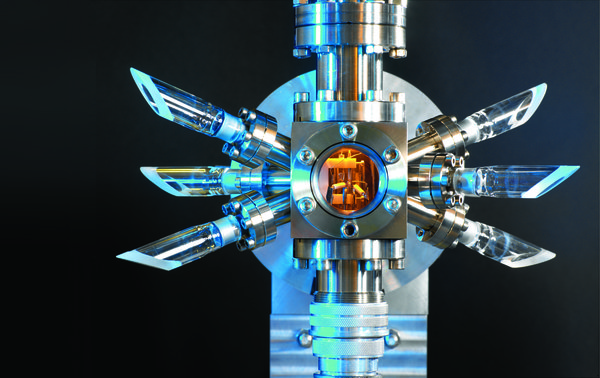The National Physical Laboratory: paving the way for trusted time and frequency across the UK
This post was written by Leon Lobo
Time is the invisible utility underpinning capability across critical national infrastructure (CNI), as the basis for global navigation satellite systems (GNSS), synchronisation of 5G mobile telephone networks and the energy grid and timestamp traceability critical for trading platforms in financial services.
The world we live in is increasingly digital, with the last few years only accelerating this. We are seeing advances in communication and connectivity and society’s reliance on reliable positional, navigational, and timing (PNT) data is growing.

Many aspects of UK industry and society require increasingly precise time, whether it’s at home on our devices, the telecoms networks, energy, broadcast or in the finance industry where the time margins used are unfeasibly fine: one second for voice trading, one millisecond for electronic trading, and just 100 microseconds for high-frequency trading – all traceable to Coordinated Universal Time (UTC), the global time scale.
The systems, which rely on PNT signals from GNSS, are robust in themselves and have procedures in place to deal with any GNSS based system faults. However, disruptive interference can occur unintentionally and deliberately, with malicious interference a growing possibility. Potential interferences include jamming GNSS receivers, rebroadcasting a GNSS signal intentionally or accidentally, or spoofing GNSS signals to create a controllable misreporting of position.
An alternative timekeeping source is crucial to help prevent any serious impact to all of the above if something were to occur to the signals received via GNSS. They will also future proof society as we develop smart cities, autonomous vehicles and communications.
To mitigate these issues and vulnerabilities, the National Physical Laboratory (NPL), through its National Timing Centre (NTC) programme, is developing an alternative, potentially primary solution for future timing. The team and I are striving to ensure that the UK digital infrastructure is supported by a GNSS-independent sovereign capability for time moving forward. I am keen that we become more aware of our dependency on GNSS and start to consider how we do things differently. Dependence by default on this space asset is no longer tenable without due consideration for resilience of operations.

The NTC programme will provide the resilience needed to protect critical national infrastructure, keeping essential services running and ensuring trust in new technologies. It will enable the UK to move away from reliance on GNSS, like GPS, for time, and leverage a range of time and frequency distribution technologies including fibre, communication satellites, and terrestrial broadcasts, alongside GNSS.
NPL’s NTC programme aims to deliver a resilient UK national time infrastructure through the building and linking of a new atomic clock network distributed geographically in secure locations. It will also provide innovation opportunities for UK companies through funding projects in partnership with Innovate UK based on a successful NPL and Innovate UK partnership model. Finally, the programme will respond to the specialist skills shortage in time and synchronisation solutions through specialist, apprentice and post graduate training opportunities.

Improved resilience will help to strengthen our society through faster, more secure internet, robust energy supplies and reliable health and emergency services. As a community that understands timing and timekeeping, I am keen to have you engaged, raising awareness of why time is important to our daily lives and what we need to consider to ensure we have resilient time for the future.
Dr Leon Lobo is Head of the National Timing Centre at the National Physical Laborartory, whose work focuses on developing and delivering the UK's national timing strategy. Having worked at NPL since 2011, Dr Lobo has led the team managing the UK’s time scale and supported on the development of NPLTime®